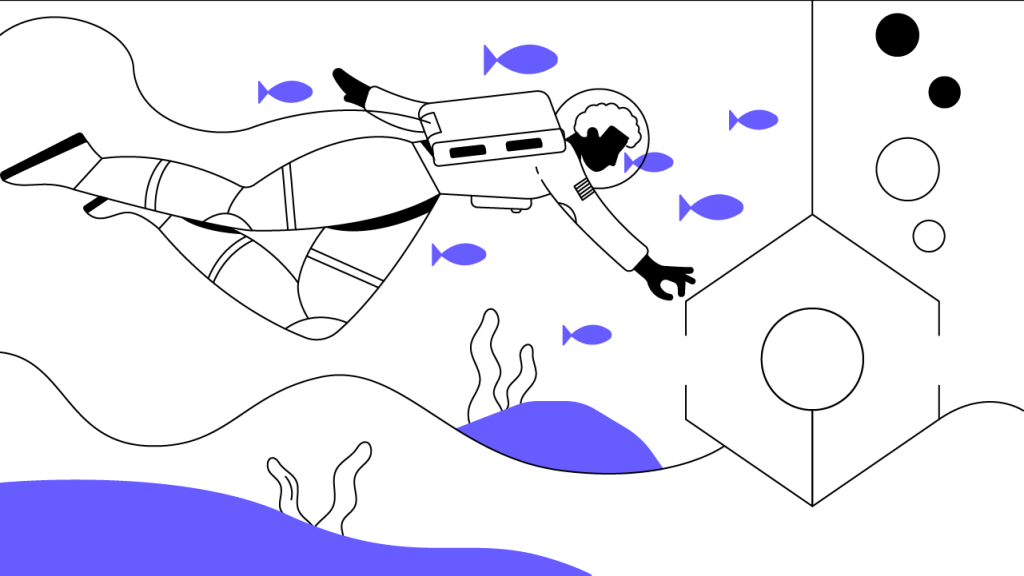Contents
Ankr Network (ANKR): Infrastructure Tools for Web3
Ankr makes it easy to run multiple full nodes from different blockchains simultaneously — whether they’re staking nodes or developer nodes.
Updated November 2, 2023 • 4 min read

Summary
The Ankr (ANKR) crypto platform comprises a suite of tools that streamline access to the decentralized web. Ankr users can deploy dedicated validator and developer nodes, access application programming interface (API) endpoints, and participate in staking on Ethereum 2.0 (Eth2) and Binance Smart Chain (BSM), with plans for future integrations. The Ankr platform effectively eliminates barriers to entry by providing pre-built infrastructure that serves the diverse needs of Web3 stakeholders.
Web3 Infrastructure and Ankr Node Deployment
Ankr is a platform that provides tools to streamline access to Web3, a term that encapsulates the emerging generation of blockchain-based decentralized internet platforms like Ethereum and Polkadot, among scores of other Layer-1 blockchains. The foundation of every blockchain is a decentralized network of nodes that serves as a gateway to its decentralized ecosystem. These individuals or machines contribute computing power to help maintain the security and functionality of their native blockchains. On Proof-of-Work (PoW) networks, this is done by hashing data. On Proof-of-Stake (PoS) networks, this is achieved through staking or validating. In both types of networks, nodes play an essential role in the decentralized web ecosystem.
The Ankr crypto platform aims to eliminate barriers to node deployment, making it easier for individuals to partake in the nodal network of a blockchain and potentially capture the rewards often associated with participation. Ankr’s nodal deployment services are also useful for Web3 organizations looking to spin up a platform or product that may operate on a particular blockchain, or develop programs that require access to multiple blockchain networks concurrently. Ankr’s distributed computing platform is furnished by its native ANKR token, which is used to pay for services and for staking Ankr’s own nodal network.
Staking Nodes Is Simpler With Ankr
Blockchains that utilize the PoS consensus mechanism rely on validator nodes to secure the network. Entities running validator nodes deposit a required amount of native tokens (or coins) into a wallet and earn rewards for their ongoing participation. Despite the attractive economics of PoS node validation, establishing a staking node can be costly and complex. Users must possess technical know-how and make sizable investments in both hardware and software.
Ankr eliminates these barriers by operating as a node host for many concurrent blockchain networks. Through Ankr's simple interface, any user can lock in the required tokens or coins to spin up a node by clicking a button. For this convenience, users pay subscription fees and avoid the complexity and costs associated with setting up the underlying infrastructure. Further, Ankr is responsible for node performance, which means that users have less risk of losing a portion of their stake to slashing — a practice that penalizes validators for downtime. Perhaps most important, Ankr is entirely non-custodial, which means that Ankr users’ funds are not owned by the Ankr crypto platform and staking rewards belong to the validator, even when using Ankr infrastructure.
Ankr Developer Node Deployment
Developer nodes serve as a sandbox for decentralized application (dApp) and cryptocurrency deployment. These nodes provide access to the testnet, devnet, and mainnet of the respective underlying blockchain network. Although the development environment of each blockchain network differs, the intended use remains constant: developers can safely conceptualize, build, and launch new projects on their chosen blockchain.
The process of establishing a developer node can be time-consuming and expensive. By using Ankr’s established infrastructure, users can deploy a developer node almost instantly and start working on projects, instead of building them from scratch. Like staking nodes, developer nodes are subject to a subscription fee. However, this expense is much lower than the investment required to establish a newly built node.
Ankr Developer APIs
An application programming interface (API) is a set of codes and protocols that facilitate communication between different software platforms. When building applications on a blockchain network, developers must often start from scratch. APIs help solve this problem. Ankr users have access to APIs that interact with several blockchain networks, each offering unique functionality:
Binance Chain: Ankr is the first and only solution that facilitates simultaneous access to Binance Chain (BC) and Binance Smart Chain (BSC). Through this integration, developers can build on Binance Chain without concern for the underlying infrastructure.
Ethereum: Ankr supports data queries and smart contract interactions on the Ethereum blockchain.
Polkadot: Through Ankr, developers can build on the Polkadot protocol and Substrate-based blockchains in addition to parachains.
EOSIO: Developers will be able to build on EOSIO and connect to the EOSIO ecosystem, dApps, and wallets through Ankr.
OKExChain: The Ankr API for this platform gives developers access to a blockchain network built for the future trading of anything with value, not just tokens.
In contrast to Ankr's dedicated node deployment options, APIs offer access to pre-established Ankr nodes. This service caters to users who don't need a dedicated node but still want to access on-chain data — like data centers and exchange platforms.
Staking on the Ankr Crypto Platform
The Ankr staking platform — previously known as Stkr — is built to address the current liquidity and accessibility hurdles resulting from ongoing Ethereum 2.0 (Eth2) blockchain development. As of February 2021, Eth2 validators must stake 32 ether (ETH) to participate as a validator in the network. Once staked, validator ETH is locked in until sharding is supported on Eth2, which could extend into 2022.
As a result, would-be validators face a high barrier to entry and a long vesting period. In response, Ankr has developed a unique staking model that involves three parties:
Providers: These users provide the computing power that supports "sidecars'' running on an Ethereum 2.0 node — each sidecar holds up to a 32 ETH stake. Providers can use their hardware or deploy a node on Ankr. They can also submit insurance, in ANKR or ETH, which guarantees against poor node performance or withdrawal (if with Ankr). If ANKR is the insurance, the equivalent of 2 ETH is necessary. Rewards for an ANKR-funded node are issued in ANKR tokens at the end of the staking period. The purpose of this guaranteed amount is to ensure that stakers never suffer.
Stakers: These users are requesting staking services from a provider — they stake ETH and don't host a node. They can stake 0.5 ETH or more, with each stake allocated to internal pools prioritized by provider scores. Those staking on the Ankr Eth2 platform can receive Ankr ether (aETH), a synthetic, bond-like asset that provides immediate liquidity. This token represents your original stake plus earned rewards and appreciation. Ankr ether holders can already exchange their tokens on Uniswap or stake them on SnowSwap to optimize returns. Alternatively, validators can choose to receive Futures ether (fETH), a futures-like asset that earns a set return on a predetermined schedule.
Governors: Anyone that holds ANKR tokens in a private, supported wallet is considered part of the platform's governance. These users can vote on proposals that influence where the project is heading. Although the Ankr platform chose to support Eth2 staking first, there are plans to offer similar variations of this model for Binance Smart Chain (BSC), Avalanche (AVAX), and Polkadot (DOT).
Ankr Custom Enterprise Solutions
Ankr's prefabricated solutions are potentially beneficial for enterprise clients looking to build out new features for end-users:
Data analytics: Leveraging on-chain data facilitates the development of crucial platforms like exchanges and marketplaces. With Ankr, a company can run a full node on multiple blockchains simultaneously with minimal effort.
Node integrations: Ankr nodes support various functions that companies might want to explore when determining their customers' optimal service offerings. For example: staking, trading, and custody services are all possible integrations when deploying a node.
API solutions: The Ankr crypto platform connects to the API endpoints of several high-profile blockchain protocols. These APIs serve a variety of purposes, which include developing centralized exchanges (CEXs), decentralized exchanges (DEXs), and dApps.
Ankr’s Evolution and Outlook
Although Ankr began as a decentralized cloud computing network (DCCN), the company has since pivoted to focus on providing tools that streamline access to Web3. Through a diverse offering of solutions, the platform effectively serves stakeholders across the decentralized ecosystem. With expanding staking capabilities, developer API integrations, and further node deployments in the works, Ankr is working to provide robust interstitial connectivity between the various networks of the blockchain ecosystem — an essential step in achieving internet-scale usability in the decentralized era.
Cryptopedia does not guarantee the reliability of the Site content and shall not be held liable for any errors, omissions, or inaccuracies. The opinions and views expressed in any Cryptopedia article are solely those of the author(s) and do not reflect the opinions of Gemini or its management. The information provided on the Site is for informational purposes only, and it does not constitute an endorsement of any of the products and services discussed or investment, financial, or trading advice. A qualified professional should be consulted prior to making financial decisions. Please visit our Cryptopedia Site Policy to learn more.

Is this article helpful?


